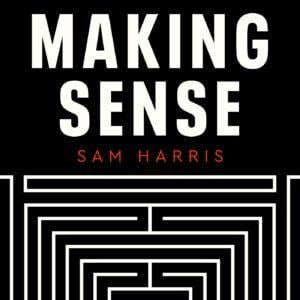
In this episode of the “Making Sense with Sam Harris” podcast, Sam Harris interviews Paul Bloom, a psychology professor and author, to discuss various topics including AI, free speech, mental health, and living a good life. They delve into the recent developments in AI, the impact of social media, the complexities of the human mind, and the challenges of navigating the information landscape in the digital age.
Recent developments in AI, particularly the rapid improvement of AI models like GPT-4, have raised concerns about AI risk and alignment. Experts are alarmed by the lack of safeguards as AI approaches human-level intelligence, which magnifies the near-term risk of unintended consequences and malicious uses of narrow AI. The misuse of AI-generated fake information could render the internet unusable, leading to a global entanglement with misinformation. Even if we solve the misinformation problem, the question remains: what will we want when all valid information can be produced by machines?
While AI is improving at providing accurate answers to specific questions, reading nonfiction books is still crucial for gaining a deeper understanding of an author’s perspective. Podcasts and audiobooks are becoming increasingly important for people to disconnect from screens and engage with the real world, offering alternative ways to consume information and broaden their knowledge.
Psychology has valuable insights into questions that matter, such as living a good life and understanding the impact of AI. However, many of psychology’s findings are not as robust as previously thought. Good novels, TV series, and fiction in general can teach us more about life experiences than psychology textbooks, as they capture the substance of human experience and provide unique insights that go beyond what psychology can offer.
The mind is a complex and multifaceted phenomenon that may never be fully understood. While we have knowledge about different components of the mind, such as memory, personality, language, motivation, and sex, there is still much to discover. We understand how the brain gives rise to intelligence, but the question of how it gives rise to consciousness remains elusive. Mental life is a product of natural and cultural evolution, and not all aspects of our minds are accessible to our consciousness.
Social media platforms amplify the problem of misinformation, distorting our perception of reality and leading to a lack of fact-based discussions. They can bring out the worst in people, create extreme views, and consume mental energy. The business model of maximizing ad revenue is largely responsible for the negative impacts of social media. It is crucial to recognize and address these negative impacts, finding ways to mitigate misinformation and foster a healthier online environment.
This episode of the “Making Sense with Sam Harris” podcast explores various topics, including AI, psychology, fiction, and the impact of social media. It raises important questions about the risks and implications of AI, the value of nonfiction books and audio content, the unique insights provided by fiction, the complexity of the human mind, and the challenges posed by social media. By delving into these subjects, Sam Harris and Paul Bloom encourage listeners to think critically about the role of technology, the pursuit of knowledge, and the impact of digital platforms on our lives.